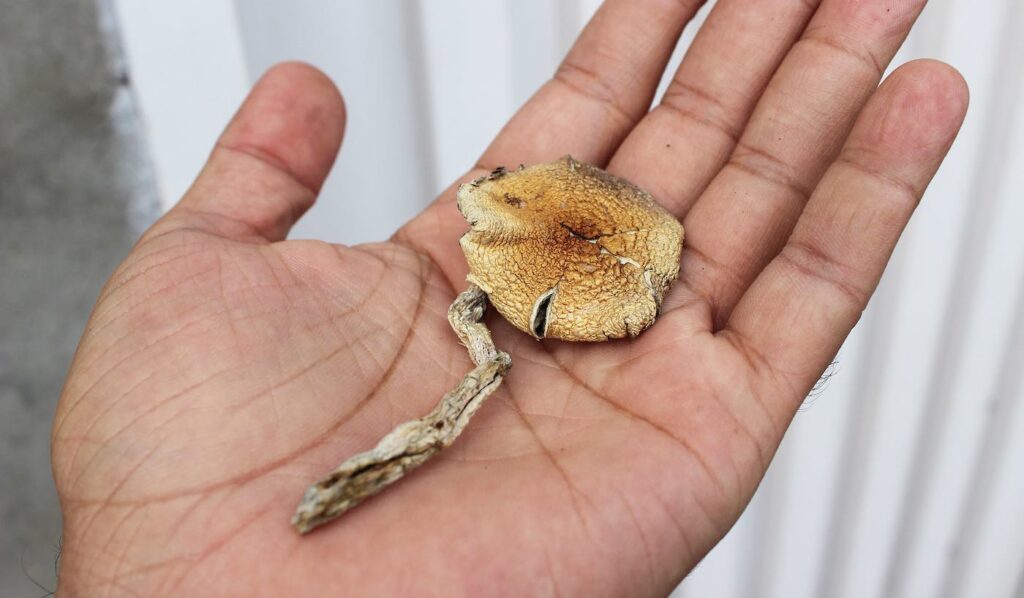
What happens when a bunch of scientists put a study group of older people together and give them all psychedelic mushrooms? As it turns out the world’s largest study on microdosing found they get more at peace, and more dexterous to boot.
Microdosing is a term used to describe the repeat consumption of nearly-negligible amounts of psychedelics in order to (theoretically) enhance cognitive performance in a variety of ways.
It’s not so theoretical anymore however, as the findings, now peer-reviewed and published in Nature, show how psilocybin microdosing is associated with general improvements in mood and mental health.
Additionally, a finding specific to individuals over the age of 55 indicated that microdosing was associated with greater improvements in psychomotor performance relative to non-microdosers. Yet further, adults over 55 exhibited an even larger improvement in psychomotor performance when psilocybin is stacked with lion’s mane mushroom and niacin compared to psilocybin alone.
RELATED: Another Study Shows Psychedelic Psilocybin Mushrooms Offering Long-Term Relief From Depressive Symptoms
These results may help inform the design of human clinical trials involving psychedelic substances.
One of the common criticisms of observational studies of this kind is that they are uncontrolled and unable to parse apart placebo effects from those related to the true pharmacological effects of psychedelic substances. Observational research’s purpose is to observe behaviors as they occur naturally in the world, and draw conclusions without interfering with those natural practices.
Although an expectancy effect cannot be ruled out for depression, anxiety and stress, the reports on subjective benefits are complemented by improvements in the study’s psychomotor task (the Finger Tap Task), which adds robustness to the results.
The Finger Tap Task is one of the most commonly used dexterity tests to help diagnose Parkinson’s Disease, and involves a patient tapping their index finger and thumb together as many times and as fast as possible over 15 seconds.
“The tap test results are interesting. Although a placebo in this type of observational study is not appropriate, the tap test results with microdosing combining psilocybin, niacin and Lion’s Mane over baseline, and in comparison to psilocybin taken with any other combination, stands out as a strong signal of significance for psychomotor performance. We are excited to test this clinically,” notes Paul Stamets, world-renowned expert in mushrooms of all kinds.
Other observational results from the trial include one that showed from baseline to Month 1, microdosers systematically report larger decreases in mental health-related symptoms than non-microdosers.
Adults over 55, who microdosed with psilocybin mushrooms in addition to Lion’s Mane and niacin showed the largest (about 40%) increases in total number of taps after about one month relative to non-microdosers and those that microdose psilocybin alone.
RELATED: Psychedelic Found in Magic Mushrooms Spurs Growth of Neural Connections Lost in Depression, Landmark Study Finds
The study, informally called Microdose.me, has over 19,000 participants from all over the world and has been presented at numerous conferences including SXSW, Summit LA, TED and Life Itself. The study was conducted in partnership with the University of British Columbia, Maastricht University, Paul Stamets and Dr. Pamela Kryskow, among others.
“I am proud of the constant effort put into improving the study design with feedback from our participants, supporters and other scientists. Together with fellow citizens and researchers, we are developing versions of the study that will be used to generate discoveries related to psychedelic microdosing for years to come,” shares Maggie Kiraga, Director of Research Quantified Citizen, a citizen-science app that helped design the study.
TRIP On This Good News And Share With Your Over-55 Friends…
Credit: Source link



